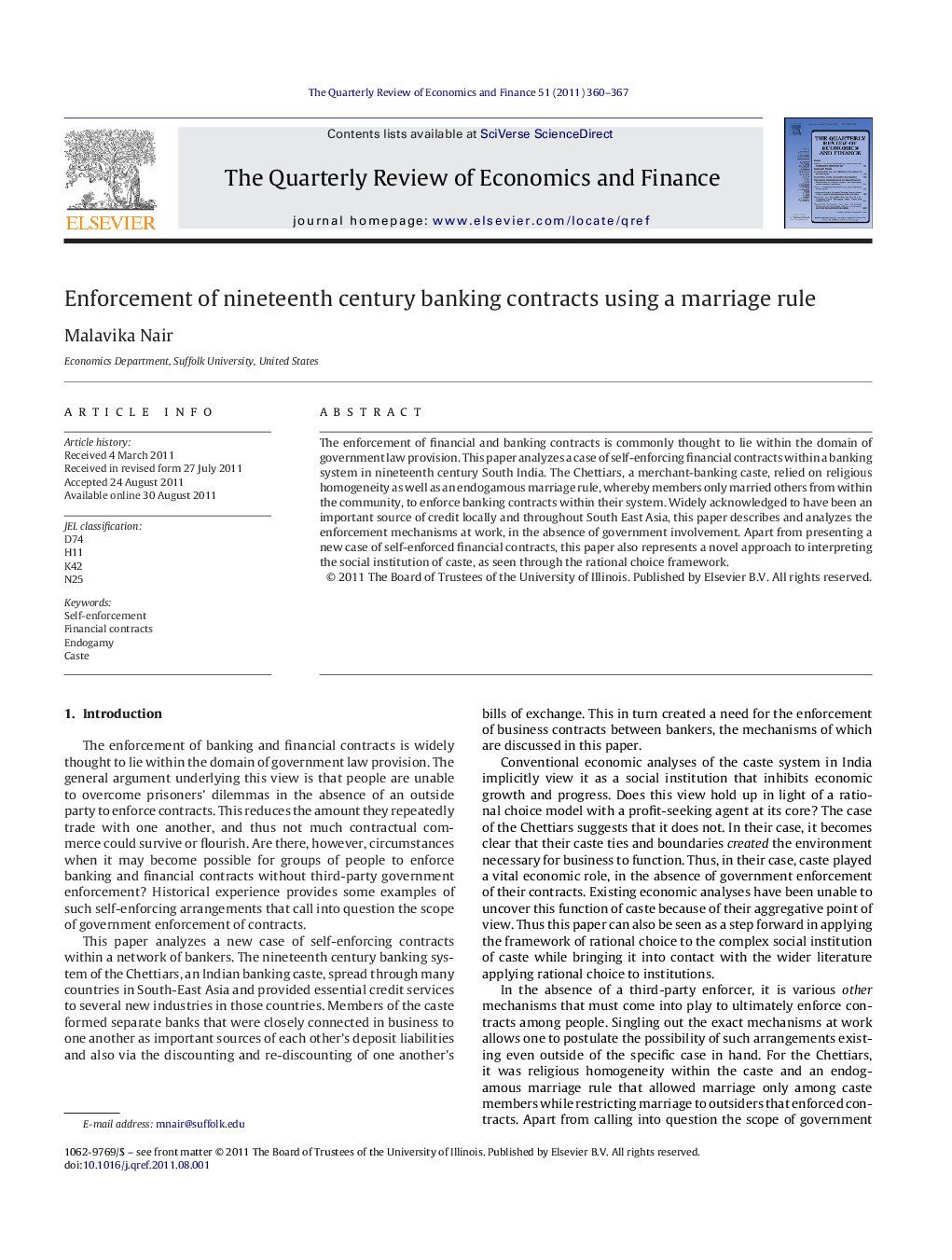| Article ID | Journal | Published Year | Pages | File Type |
|---|---|---|---|---|
| 980404 | The Quarterly Review of Economics and Finance | 2011 | 8 Pages |
The enforcement of financial and banking contracts is commonly thought to lie within the domain of government law provision. This paper analyzes a case of self-enforcing financial contracts within a banking system in nineteenth century South India. The Chettiars, a merchant-banking caste, relied on religious homogeneity as well as an endogamous marriage rule, whereby members only married others from within the community, to enforce banking contracts within their system. Widely acknowledged to have been an important source of credit locally and throughout South East Asia, this paper describes and analyzes the enforcement mechanisms at work, in the absence of government involvement. Apart from presenting a new case of self-enforced financial contracts, this paper also represents a novel approach to interpreting the social institution of caste, as seen through the rational choice framework.
► The paper studies the self-enforcement mechanisms used by the Chettiar banking caste. ► Provides a new historical instance of self-enforced order in a large banking system. ► Represents an application of rational choice theory to caste as a social institution. ► The functioning of caste appears as vital to trade and prosperity in this case.
